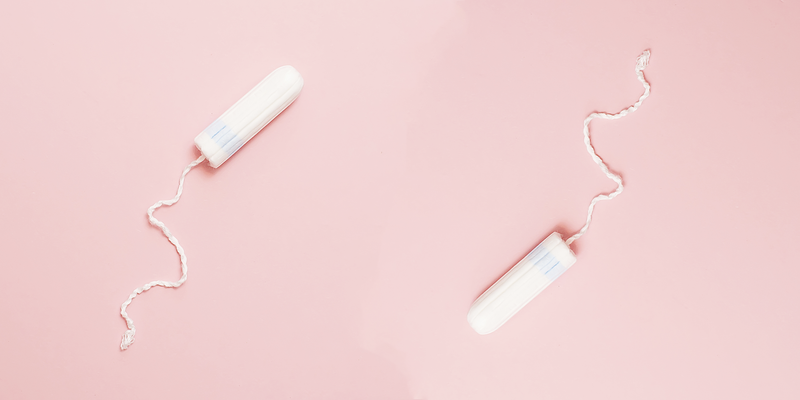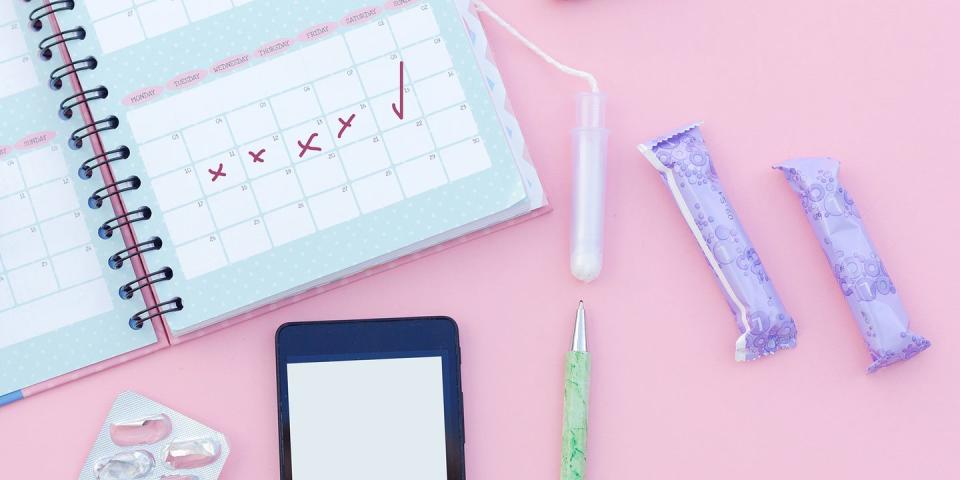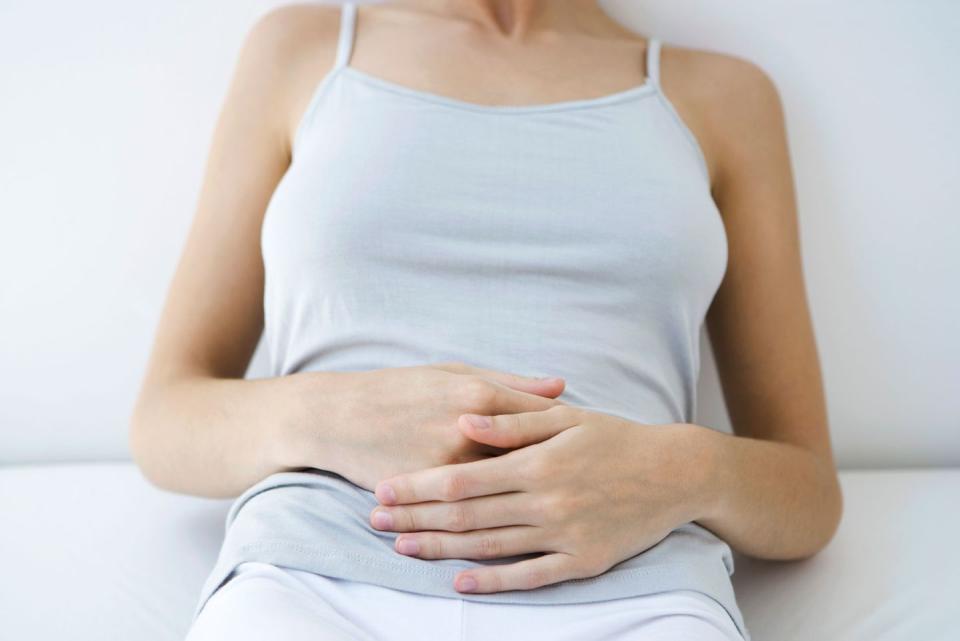The pandemic is affecting your periods, new study shows

We're mid-way through our third lockdown, after COVID-19 infection rates peaked over Christmas in the UK, and things feel pretty far from normal. Over the past year, as the coronavirus pandemic has gripped the globe, our livelihoods have been affected, along with our social lives and our mental health. But what you might not realise is that such strain could be having a physical impact on you, too, where your periods are concerned.
The anxiety caused by the uncertainty of coronavirus and enforced isolation has led to increased stress levels for many and, without you even realising, it could be impacting your menstrual cycle. In fact, a new study has shown that more than half of women (52.6%) have experienced a change to their cycle during the pandemic.
The research, which was carried out by athlete healthcare company Orreco Ltd in conjunction with sport scientists at the UK universities of Loughborough, Lincoln and Nottingham, is yet to be peer-reviewed. But its results suggest it's definitely a thing for the coronavirus crisis to disrupt periods. 749 women were surveyed on their menstrual cycle symptoms and characteristics prior to - and during - the first COVID-19 lockdown last year. They were also asked about their lifestyle, stress, exercise and nutrition.
The results showed that stress appeared to be the main contributing factor to changes in the menstrual cycle. But as well as differences noted in the period itself - with the majority of women noticing their cycle was longer - the research also highlighted changes to menstrual symptoms. Most of these were psychosocial, with over half of all participants reporting they had experienced a lack of motivation (59.3%), focus (53.1%) and concentration (54.9%). Mood changes, irritability, feeling emotional, worry and being distracted were also all reported in more than half of the study's subjects.

This study, while not for use in clinical guidance just yet, looks to confirm what experts have suspected for a while. "Stress can impact both mental and physical health. For people who menstruate, stress can also impact the period," Dr Sarah Toler, Doctor of Nursing Practice and science writer at female health app Clue, tells Cosmopolitan. She goes on to outline the multitude of ways in which stress can manifest when it comes to your period...
Stress can cause a late or non-existent period
If your period is delayed, or hasn't arrived at all, it doesn't necessarily mean you've got a baby on the way. It could just be stress doing its thing. "Stress activates a hormonal pathway in the body called the hypothalamic-pituitary-adrenal (HPA) axis," explains Dr Toler. "This activation encourages the release of the stress hormone, cortisol, and corticotropin-releasing hormone (CRH)." Together, these three components (that's the HPA axis, cortisol, and CRH) help to control stress response in the body. But, as the doctor explains, "excess release of cortisol can suppress normal levels of reproductive hormones, potentially leading to abnormal ovulation, which can disrupt your cycle."

This disruption could, in turn, lead to a late onset of your period - or in some cases you might not get a period at all, which is known as 'amenorrhea'. Dr Toler notes that, while there is little scientific research to prove a direct correlation between stress and menstrual cycle disruption (as other associated factors may come into play), "war, separation from family, and famine have been anecdotally linked to amenorrhea in physician and epidemiological reports."
Your cycle could change in length
"Additionally, daily life stress may also affect the length of your cycle," explains the doctor - which is exactly what this new study has found. "One study of stress in female nurses found associations between high stress and anovulation (when ovulation does not take place) as well as high stress and longer cycles. Conversely, high stress but low control jobs, where the person has little control over their work tasks and other key decisions, have been associated with shorter cycles."
Your PMS could feel worse
This is one we're really hoping won't happen, because the last thing we fancy while on lockdown is having to deal with mood swings and intense cramps. Dr Toler explains: "Increased menstrual pain could be one side effect of this stressful situation. Dysmenorrhea (painful menstruation) has been linked to working in jobs that are low control, are insecure and have low coworker support." If this kind of stressful work situation can bring on intense PMS, it follows that, in theory, so may other stressful situations.
However, the doctor notes that you may not see this kind of effect until later down the line. "Stress from the preceding month may also affect the frequency of dysmenorrhea, so someone might not experience painful menstruation as a result of stress until their period the following month," she says. The expert adds that you're more likely to notice worsened cramps if you have a history of dysmenorrhea.

What can you do to keep your cycle as normal as possible?
"It’s important to keep in mind that it is not likely that this outbreak will impact your cycle," says Dr Toler. But if you want to pay close attention to how your body is coping, you can monitor any changes by tracking them in an app like Clue. "Vitally, keep in mind that stress is most likely to be the culprit of any changes to your cycle that you notice, not the coronavirus itself," reassures the expert.
From a mental health point of view, she advises: "If you’re feeling mentally impacted by the coronavirus news, the best thing to do is to focus on yourself and practice some self care. Instead of staying glued to the latest COVID-19 updates, allow yourself some distance from the news cycle. Try to fit some stretching and deep breathing into each day. If you live with partners, roommates, or family, take this time to connect and nurture your relationships. Check in with friends and neighbours over phone or video - your virtual companionship might help someone cope and help you feel connected."
Follow Cat on Instagram.
Cosmopolitan UK's current issue is out now and you can SUBSCRIBE HERE.
Like this article? Sign up to our newsletter to get more articles like this delivered straight to your inbox.
You Might Also Like


